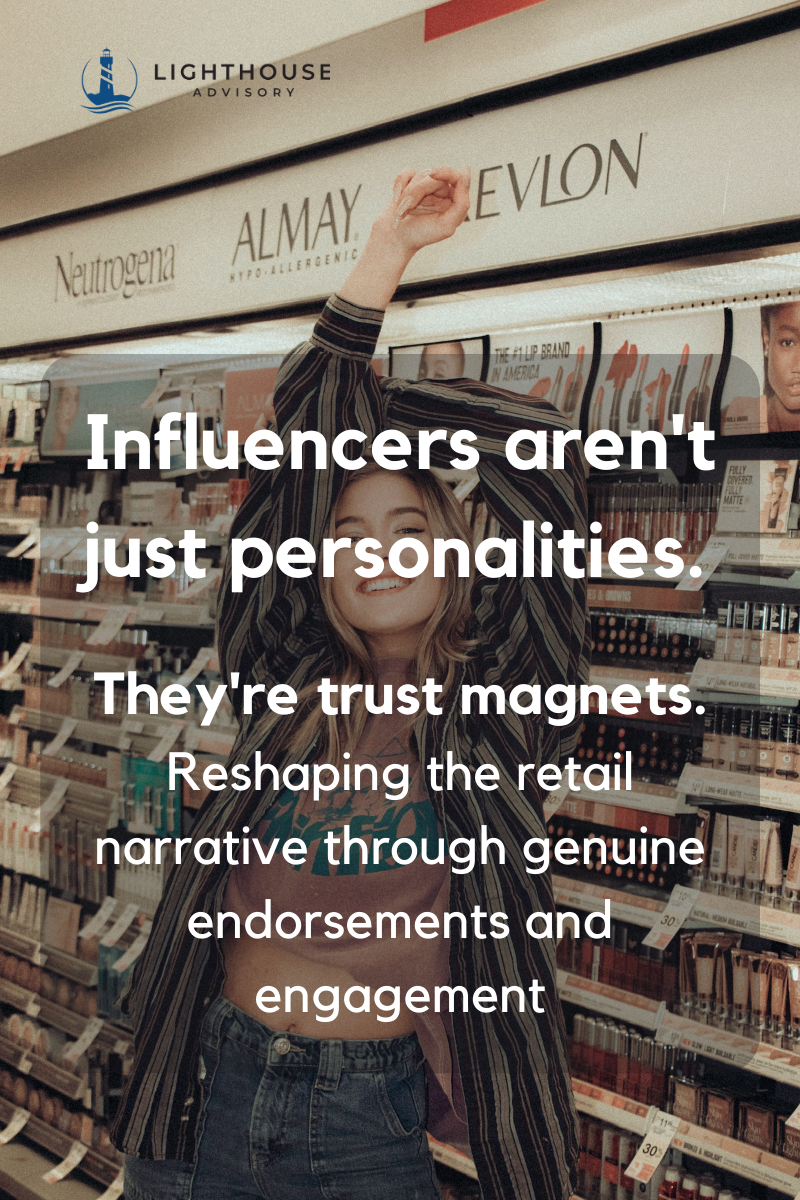Influencers and E-Commerce: The New Force for Your Business
Key Takeaways:
Platforms like Instagram, TikTok, and Facebook aren't just entertainment. They serve as lifestyle lighthouses.
The synergy between brands and influencers leads to tangible results.
E-commerce has brought many innovations. But, the role of social media influencers stands out. These online personas, with distinct following, are crafting a new narrative in online marketing.
Social commerce is central to this transformation. It's an innovative strategy combining shopping with social media.
Understanding social commerce
Social commerce marks a shift in how consumers experience online shopping.
Rather than traditional browsing and searching, it offers a more engaged shopping journey.
Most modern consumers, especially Millennials and Gen Z, are engaged with their social media accounts.
Platforms like Instagram, TikTok, and Facebook aren't just for entertainment. They serve as lighthouses and guide users' choices, from pop culture to shopping.
In this digital landscape, influencers have carved a niche for themselves. Their genuine and relatable content cuts through as opposed to traditional ads.
When these influencers vouch for a product, it's seen not as a pitch but as an honest recommendation.
Augmenting this is the convenience that social commerce brings.
The process is smooth:
Spot a product on a post or story, swipe or click on it, and land to an online checkout.
The entire experience is swift, easy, and satisfying.
The unique role of influencers
At the core of the social commerce are influencers.
These individuals, with various followings, are more than just digital personalities.
They are pillars of modern marketing.
Unlike celebrities who might endorse various products, influencers are selective.
Why? Because their endorsements stem from personal experiences and align with their brand.
This selective approach, combined with their domain-specific expertise, makes influencers trust magnets.
For instance, a beauty influencer's tips on skincare are trusted because they're backed by experience.
At the same time, a tech influencer's gadget review is awaited for its depth and authenticity.
Besides, influencers prioritize engagement.
Their interactions aren't limited to broadcasting content.
They chat, conduct polls, share snippets of their lives, and create a shared space with their followers.
This two-way communication fosters a bond.
There's also their expertise in visual content.
Visuals dominate, and influencers hold their audience's attention with effective images, videos, and stories.
Strategic cooperation for growth
The collaboration between brands and influencers is multifaceted.
1) We have sponsored content. This is where influencers create posts or videos infused with their experiences with products.
While promoting, they ensure transparency, often tagging these as #ad or #sponsored.
2) Then there's affiliate marketing. It's a performance-centric approach where influencers reap rewards based on the sales generated via their unique links.
3) Some collaborations exceed regular promotions.
Think of a beauty influencer launching a limited-edition product line with a major brand. Such initiatives blend the influencer's brand with the product. It brings authenticity and distinctive features.
4) Beyond these, some brands envision a longer journey with influencers.
They are turning them into brand ambassadors. This way, the influencer becomes a face and voice for the brand.
Enduring impacts and considerations
The synergy between brands and influencers leads to actual results.
Enhanced brand recall, sales growth, and website traffic spikes are expected outcomes.
Influencers act as a bridge on the trust front, lending brand credibility.
Like all strategies, there are risks. Over-commercialization can dilute an influencer's authenticity.
Ensuring that the influencer's brand aligns with the corporate brand is crucial.
There's also the challenge of measuring the intangibles.
Metrics like clicks, views, and sales are specific, and quantifying trust or brand perception still needs to be improved.
Conclusion
Combining e-commerce with social media influencers creates a relationship of trust, engagement, and sales.
For consumers, it offers a trustworthy and interactive shopping experience.
For brands, it's a golden ticket to visibility and authenticity in a crowded digital marketplace.
Looking ahead, this partnership promises to redefine the retail landscape.
We expect the bond between e-commerce platforms and influencers to be essential.
They aren't changing the game – they're crafting a new one for the next generation of online shopping.
Stay Ahead of the Curve
Take your marketing strategies to new heights.
Reach out to learn more about our Lighthouse Advisory Influencer Marketing Service.
Discover how we can help you unlock the full potential of influencer marketing:
Driving engagement
Boosting sales
Enhancing your brand's narrative
Let us guide you and help your brand stand out, resonate deeply, and succeed in the digital landscape.
Don't miss the opportunity to transform your brand's presence – get in touch now!





